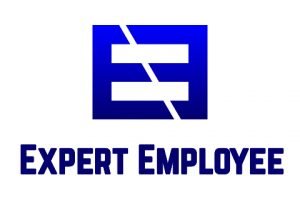This post contains affiliate links.
When a company posts a job opening they have one purpose – finding a candidate that solves their problem. It is that simple. There are many reasons for hiring – backfilling a departure, business growth, or expanding into new markets. The hiring manager has the mission to identify what candidates can do for the company and bring them on board. The hiring team will keep looking if they don’t believe you will solve their problem, even if you check all the other boxes.

There are hundreds of articles on the internet about interview questions and the hiring process so it can seem incredibly complicated. But when you boil it down, there are only 4 big questions that are being decided. The candidate that best satisfies these four topics during the interview process is going to get the job offer. It is important to know that the interviewer will not ask these questions during the interview. Instead, they ask other questions to get information about you to make these decisions for themselves.
1. Are you qualified for the position?
Your resume needs to provide a good summary of your technical skills, qualifications, and experience because its only purpose is to spark interest and get you a callback. The first three requirements listed in the job description usually contain the critical skills needed so be sure to cover them. Prepare three or four examples that highlight your execution in these areas.

Interviewers frequently ask easier knock-out questions during a phone screen to verify skills and knowledge. Applicants exaggerate on their resumes so this is an easy and efficient way to separate candidates not worth an additional interview. Team projects are another area that is examined. It is easy to list a big win on your resume when your main contribution was to warm a chair at a couple of meetings. Don’t overstate your role or contribution, experienced interviewers will uncover the deception and you lose all credibility. You need to be able to speak to the specifics for everything listed on your resume.
Whenever possible, describe your accomplishments using the STAR method focusing on the results achieved. If you need to set the stage by describing your role and responsibilities, keep it to two or three sentences with only the most important details to help the interviewer understand clearly. Expect the onsite interview will dive deeper into your skills and how you use them to drive results. Your resume is a summary, be prepared to explain everything on it in more detail and not just read your resume back to the interviewer
2. Do I like you?
Make no mistake, first impressions are vital to the interview process. Carry yourself with confidence and be polite to everyone you meet. It is easy to get caught up with the stress of the interview process and view it as an interrogation. But this won’t give the interviewers an accurate picture of what you will be like as a coworker. Remember, the interviewers want to hire someone with a personality that is enjoyable to be around during all the hours you are at work. Put your best self out there and let your character show. If you try to be something you are not it will come off as awkward and unnatural with the interview team.

Be friendly and have an actual conversation with the interviewers. While people are getting settled make a comment or two about your day or current events. Recent press releases from the company or related industry news are usually great topics for discussion. Making small talk about the company shows that you stay informed and are serious about the position.
Your goal is to be memorable to each person you meet. Some people try to establish a connection through shared interests or have something unique to set them apart. The best way is to be engaged and ‘be the person you would want to work with’. Pick any topic under the sun and no matter how boring it might seem to you if you are talking to someone that is really into that topic you will recognize their enthusiasm. It may still be boring but their energy makes it more bearable.
As the candidate, you absolutely must bring your enthusiasm to the interview. You applied for the position and if you are low energy during the interviews then will you be motivated doing the work? You should be excited to go through the interviews to learn more and see if it is a good fit for you. Don’t be over the top but make sure you get a good sleep the night before and have your morning coffee.
3. How will you help me?
People naturally look after their own self-interest, even during the interview process. However, answering this question covers different elements depending on the interviewer’s role.

Hiring Manager
Expect the hiring manager to cover all aspects of the job, more than all the other interviews. After all, your shortcomings will become their problems. Give examples that highlight your self-motivation and ownership. Nobody wants to manage a person that requires constant hand-holding, show that you are a self-starter. Qualities such as self-motivation, punctuality, ownership, responsibility, willingness to change, open-mindedness, cooperation and striving for excellence are difficult to change in an individual.
Also, come prepared with at least two examples of significant mistakes that were your responsibility. Everyone makes mistakes, so own yours with maturity. Describe what you learned from the experience and how you prevent similar errors from happening in your work.
Senior Leadership
Members above the hiring manager belong to this group. Senior leadership is interested to see if your values are aligned with the company and how you will make their team better overall. During this interview talk about challenging business situations you faced and how you overcame them. Show your business understanding and quantify the problem and results whenever possible. Give examples of how you advanced your professional development and grew your capabilities. The best examples will connect to increased responsibilities that allowed you to play a bigger role in the business.
Senior leaders are also more forward-looking when considering a candidate. Open positions always create pressure within a team because those responsibilities need to be covered. The hiring manager may be feeling the pain and willing to accept compromises to fill the position quickly. Senior leaders want to see growth potential in candidates to ensure they have the staff to solve the immediate problem as well as the capability for long term success.
Peers
These interviewers have roughly the same title as the position and include stakeholders from other teams. For example, Purchasing and Accounting work closely together so the interviews may include members from both teams. Interviewers in this group are looking for competence and teamwork. Because they do not have direct authority over the role, they are looking for someone who fulfills their responsibilities. Give examples where you collaborated with other department members on a project. Describe the impact of missed commitments and how you resolved the problems.
Team members
Expect that you may be interviewed by a coworker. For more senior positions the interview team may include members you will supervise directly. This group will ask questions about your leadership style, communication/information sharing, staff development, and conflict resolution. Give examples of how you supported team members in the past. Mutual respect and trust are key concepts here.
4. Will you flourish here?
This question is probably the most important of the four and covers a wide range of specifics. The interviewer is evaluating each candidate in three main categories.

Challenges and workplace stress
The biggest factor is how will you respond to the natural tension in the position. Every company and position has different challenges and they affect people differently. The challenges faced by a position in the healthcare industry working with terminally ill children is very different than the challenges of working on a product team that needs to hit their launch deadline or the challenges of working in a role that deals with customer complaints face to face.
The hiring team knows the sources of stress that are present and may have caused the previous person to leave. Pay attention to their cues and questions to give relevant answers as well as improve your understanding of the position. After all, this is a two-way conversation – the company is interviewing you – and you are interviewing the company. Both parties need to be in agreement before moving forward and you have just as much power to stop the process as the company.
Alignment between company and candidate
Another aspect of Will you flourish here? is are your expectations aligned with the company. Compensation and promotion frequency are very different at start-ups compared to mature companies with an established hierarchy and pay structure. Expectations around travel frequency and duration, work schedules and hours, as well as scope of responsibility and authority are important to understand and align on. It is easy to get caught up in the excitement and allure of a new position with a new company that you gloss over some of the negatives.
Of course the situation can change in the future but don’t count on it. If the hiring manager tells you they are crazy busy and the team has worked 60 hour weeks and every Saturday for the past year they will not be understanding if you accept the position and then complain about work life balance a few weeks in. If there are obvious concern points – for example if you are taking a pay cut to move to a path with more growth potential – make sure to let the hiring team know that you understand and explain your reasons.
Off the wall interview questions like How many ping pong balls does it take to fill a city bus? are usually getting at a part of the company culture that they view is important. With this type of unexpected and ambiguous question they want to see how you react and your thought process to approach it – probably because they see the need for employees to operate in a dynamic environment with incomplete information.
There is not one correct way to approach these questions. Do you plow forward with approximations? Do you seek clarifications of the details or utilize available resources like subject matter experts or Google? Do you know the purpose of the question? i.e. are they testing your technical knowledge of packing density or do they simply have a stockpile of ping pong balls they need to move and want to know how many buses to schedule? If you know what the company values you can craft your response to include those concepts.
Expert Tip: Microsoft popularized the approach of using Fermi problems during interviews (also known as lateral thinking puzzles), but abandoned the process after finding it was not a good predictor of on-the-job performance.
Again, each company and position will have a different perspective on similar challenges. Slogans like Move fast and break things or Adapt and overcome are common for organizations that pride themselves on being agile. But even in those environments the reaction to a safety issue must be Stop and make it right.
Soft skills
Beyond the technical skills and experience necessary to perform the job, each position requires soft skills to be successful. In other words, do you have the character traits soft to work effectively with the current team members, co-workers, and company culture?
Working in a Quality function you will need to audit other members work, ensure compliance to requirements, and give polite but firm feedback when issues are found. People with social personalities may find this uncomfortable. In some companies a data scientist may do everything at a remote workstation offsite, while at another company the same data scientist role may be embedded within an improvement team and expected to be hands-on with operations on the factory floor.
As you are going through the hiring process and interviews, remember that every question and every part of the process is trying to reveal additional information so the hiring team can make these four decisions:
- Are you qualified? Demonstrate your knowledge of the sector, company, and position in your answers. Use the STAR method to quantify your results and make them tangible.
- Do I like you? Be polite and courteous to everyone at all steps in the process. Be genuine and let your personality show through during the interview. You won’t get hired if you are not memorable in some way.
- How will you help me? Tailor your discussion points to the interests of each group – hiring manager, senior leadership, peers, and team members. Demonstrate that you have the skills and experience to help the company now, and you continuously lean and improve yourself to increase your contributions in the future.
- Will you flourish here? You have to do your research before the interview to have a solid understanding of the company, the position, and what it is like to work there. Use Glassdoor information and utilize your LinkedIn network to find a connection for more specifics. Remember that you have as much power as the hiring team – the position needs to be a fit for both sides.
Keep these four concepts in mind as you are going through interviews to help simplify and organize your responses. For every question pause for a moment to consider ‘what are they really getting at?’ and craft your response to answer the real question behind the question.
Like this content? Feel free to share on LinkedIn, Twitter or Facebook by using the super-easy share buttons!
